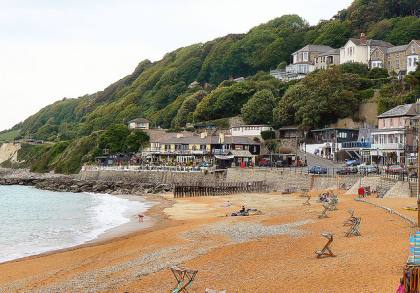
Thanks to Pippa from the Country Land and Business Association for this latest news. In her own words. Ed
The CLA yesterday (20 March 2013) called on the Government to cut VAT on the supply of rural tourism services from 20 percent to seven percent in a key report launched in English Tourism Week.
The Association has published Wish You Were Here? CLA policy on rural tourism, which accuses the Government of allowing investment in the UK’s sixth largest industry to slide – and of driving it almost to the bottom of the world league on tourism taxes. The UK ranks sixth in the world as a destination but 135th out of 139 on taxes applied to tourism.
Attracts approximately 2.46 million visitors
The Isle of Wight with its 60 miles of stunning unspoilt scenery is steeped in history with a wealth of attractions, from historic sites to natural delights, music festivals and major national events, a unique holiday destination.
The Island attracts approximately 2.46 million visitors per year equating to over £400,000,000 total visitor expenditure.
Taxing visitors to the hilt does not help tourism
CLA Isle of Wight regional director Belinda Walters said: “Our policy paper calls on the Government to explain how taxing visitors to the hilt and letting them down on broadband connectivity helps us compete with overseas destinations, particularly Europe. As a country, we fail to deliver any coherent approach to enhancing people’s visit. For all visitors, we need to deliver a real knock-out blow which will make them want to come back again and again.”
The current rate of VAT was, she said: “prohibitively high” often making a holiday in England overly expensive for prospective visitors from abroad and for home-based tourists. The CLA is also calling for any plans for a future “bed tax” – a charge levied on a per person per night basis – to be ditched describing it as a short term financial fix which would do long term damage to the industry.
Lack of strategic leadership
Mrs Walters said that the tourist industry presented a wealth of opportunity in terms of economic activity and employment but there had been a significant failure at national level to provide strategic leadership with government spending on tourism falling by 25 per cent in the ten years from 2001 – 2011.
“We want to see effective coordination between Destination Management Organisations, Local Enterprise Partnerships and the tourism sector. To tap into the real opportunities tourism offers there needs to be cohesion rather than fragmentation, medium to long-term strategy rather than the quick fix and a modern outlook rather than continually looking to the past.”
Image: Ron Saunders 47 under CC BY 2.0



